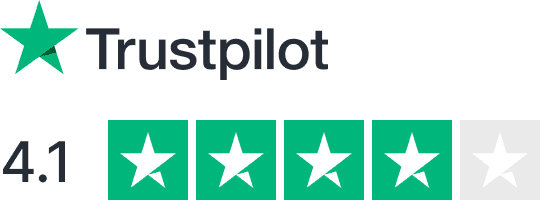Hiring in LATAM? Watch out for anti-discrimination laws. These laws protect workers and vary by country, affecting job postings, interviews, and documentation. Non-compliance can lead to fines and reputational harm. Here’s what you need to know:
- Protected Groups: Laws safeguard against discrimination based on race, gender, age, disability, religion, sexual orientation, marital status, and national origin.
- Country-Specific Rules:
- Brazil: Inclusion of individuals with disabilities is mandatory.
- Mexico: Focus on indigenous workers and gender balance.
- Argentina: Strong protections for gender equality and transgender rights.
- Colombia: Requires diversity reporting and equal pay.
- Hiring Steps:
- Use gender-neutral job postings.
- Avoid questions about age, gender, or marital status in interviews.
- Maintain detailed records, like job applications and hiring decisions, for up to 3 years.
- Compliance Tips:
- Update anti-discrimination policies annually.
- Train staff regularly on legal requirements.
- Partner with local HR experts for guidance.
Non-compliance risks include financial penalties, audits, and reputational damage. Staying compliant ensures access to skilled talent in LATAM.
Professor Tanya Katerí Hernández talks about her book …
LATAM Anti-Discrimination Laws Explained
LATAM anti-discrimination laws aim to ensure equal employment opportunities by applying consistent principles across various national legal systems. While specific regulations differ by country, they share a common goal: fair treatment for all job applicants.
Protected Groups and Rights
These laws safeguard several demographic groups from unfair treatment:
- Race and ethnicity
- Gender and gender identity, including protections for pregnancy
- Age, addressing both younger and older workers
- Disability, often requiring employers to provide reasonable accommodations
- Religious beliefs, covering all faiths and secular viewpoints
- Sexual orientation
- Marital status
- National origin
Laws by Country
Each country in LATAM has its own approach to enforcing anti-discrimination standards:
- Brazil: Discriminatory hiring practices are prohibited, and employers are required to promote the inclusion of individuals with disabilities. Non-compliance can result in legal penalties.
- Mexico: Labor laws enforce equal employment opportunities, with recent updates focusing on protecting indigenous workers and encouraging gender balance in leadership roles.
- Argentina: Legislation aims to reduce workplace discrimination, with specific measures supporting gender equality and the rights of transgender individuals.
- Colombia: Laws ensure equal pay and access to opportunities. Recent regulations also require diversity reporting and impose penalties for non-compliance.
Employers across the region must adhere to transparent hiring procedures, standardized interviews, and accurate record-keeping. These legal frameworks often demand customized hiring practices to meet compliance standards effectively.
Effects on Hiring Steps
Each step of the hiring process needs to align with LATAM anti-discrimination laws, ensuring compliance at every stage.
Job Posting Requirements
Job postings must steer clear of discriminatory language. Here’s how:
- Use gender-neutral language.
- Focus on job-related qualifications.
- Include salary ranges when required by law.
- Avoid terms that specify age.
- Exclude requirements based on personal characteristics.
For example, instead of saying "young, dynamic salesman", opt for "experienced sales professional." Be specific with measurable qualifications: use "5+ years of software development experience" instead of "recent graduate preferred."
Legal Interview Guidelines
Interviews must adhere to legal standards by following these practices:
- Ask structured questions that focus on job skills and competencies.
- Use consistent criteria to evaluate all candidates.
- Keep detailed records of responses and decisions.
- Avoid any questions about protected characteristics like age, gender, or marital status.
Required Hiring Documentation
LATAM laws require specific documentation to prove compliance. Here’s a breakdown:
| Document Type | Purpose | Retention Period |
|---|---|---|
| Job Applications | Show diversity in the candidate pool | 3 years |
| Interview Evaluations | Highlight objective decision-making | 2 years |
| Selection Criteria | Demonstrate fair evaluation standards | 3 years |
| Candidate Communications | Confirm consistent treatment | 2 years |
| Hiring Decision Records | Justify final hiring decisions | 3 years |
To ensure compliance, standardize documentation practices, securely store records, and schedule regular audits.
sbb-itb-a3fbb4e
Steps for U.S. Business Compliance
Required Company Policies
Make sure your company’s policies align with local standards in LATAM. These policies should clearly outline prohibited discriminatory behaviors, list protected characteristics, explain how to report issues, and describe investigation and disciplinary procedures. Provide these policies in both English and the relevant local language, and update them every year to reflect changes in local laws.
Once your policies are set, focus on educating your team to follow and uphold them.
Required Staff Education
Consider implementing the following initiatives:
- Quarterly sessions on compliance topics
- Monthly updates on legal changes
- Workshops on recognizing and addressing bias
- Training on proper documentation practices
Track the effectiveness of these programs by monitoring completion rates and assessment results. This helps demonstrate your commitment to compliance.
Partnering with HR experts can also strengthen your approach.
Working with HR Partners
CareMinds offers services tailored to help U.S. businesses comply with LATAM anti-discrimination laws. Their support includes:
| Compliance Area | Service Offered | Benefit |
|---|---|---|
| Documentation | Standardized hiring forms | Ensures local legal requirements are met |
| Screening Process | Bias-free technical assessments | Improves compliance and efficiency |
| Time Management | 3-day candidate matching process | Keeps hiring processes compliant and timely |
| Risk Management | 2-week trial period | Allows evaluation within legal frameworks |
Ensure regular communication and conduct frequent compliance reviews. Request monthly reports that cover key metrics, such as candidate screening outcomes, documentation compliance, updates on legal requirements, and training completion rates. This consistent approach helps you stay compliant while accessing skilled talent in LATAM.
Non-Compliance Penalties
Fines and Legal Actions
Failing to comply with regulations can result in financial and legal consequences. The penalties vary based on how serious the violation is, the size of the company, and whether it’s a repeat offense. In some areas, businesses not only face fines but are also required to take corrective actions and undergo regular labor audits. These consequences highlight the need for strong compliance practices.
Business Impact
Non-compliance can also cause major disruptions to your business. It might lead to market instability and negative publicity, which can harm your reputation, lead to the loss of contracts, and increase regulatory scrutiny over time.
To reduce these risks, consider:
- Keeping hiring documentation in line with legal requirements
- Regularly updating anti-discrimination policies
- Conducting internal audits on a periodic basis
- Working with local HR experts familiar with regional regulations
Strong compliance practices are critical to avoiding penalties and maintaining access to skilled talent throughout LATAM.
Conclusion
Understanding and complying with anti-discrimination laws in LATAM requires well-defined policies, proper training, and thorough documentation. These elements create a strong base for working effectively with HR teams.
Collaborate with HR specialists like CareMinds to simplify compliance with access to pre-screened talent and reliable HR support.
















